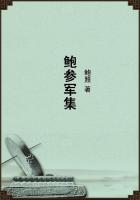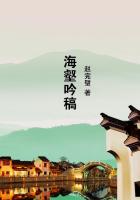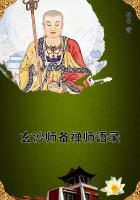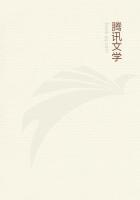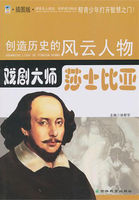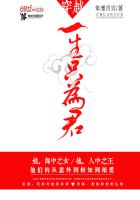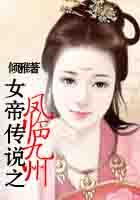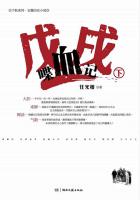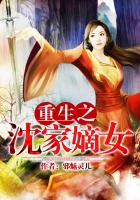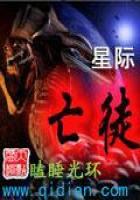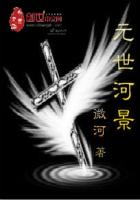The little crimson-breasted Nonpareil Was there, his tiny feet scarce bending down The silken tendril that he lighted on To pour his love notes; and in russet coat, Most homely, like true genius bursting forth In spite of adverse fortune, a full choir Within himself, the merry Mock Bird sate, Filling the air with melody; and at times, IN THE RAPT FAVOR OF HIS SWEETEST SONG, HIS QUIVERING FORM WOULD SPRING INTO THE SKY, IN SPIRAL CIRCLES, AS IF HE WOULD CATCH NEW POWERS FROM KINDRED WARBLERS IN THE CLOUDS WHO WOULD BEND DOWN TO GREET HIM!
These lines, addressed to the poet by his father, have a pathetic interest: --To Harry Harry, my little blue-eyed boy, I love to have thee playing near;There's music in thy shouts of joy To a fond father's ear.
I love to see the lines of mirth Mantle thy cheek and forehead fair, As if all pleasures of the earth Had met to revel there;For gazing on thee, do I sigh That those most happy years must flee, And thy full share of misery Must fall in life on thee!
There is no lasting grief below, My Harry! that flows not from guilt;Thou canst not read my meaning now --In after times thou wilt.
Thou'lt read it when the churchyard clay Shall lie upon thy father's breast, And he, though dead, will point the way Thou shalt be always blest.
They'll tell thee this terrestrial ball, To man for his enjoyment given, Is but a state of sinful thrall To keep the soul from heaven.
My boy! the verdure-crown|ed hills, The vales where flowers innumerous blow, The music of ten thousand rills Will tell thee, 't is not so.
God is no tyrant who would spread Unnumbered dainties to the eyes, Yet teach the hungering child to dread That touching them he dies!
No! all can do his creatures good, He scatters round with hand profuse --The only precept understood, ENJOY, BUT NOT ABUSE!
The poet's mother was the daughter of Mr. Charles Prince, a citizen of Charleston, whose parents had come from England just before the Revolution. Mr. Prince had married Miss French, daughter of an officer in the Revolution, whose family were from Switzerland.
It was the influence of his mother also that helped to form the poet's character, and his intense and passionate love of nature.
Her beautiful face and form, her purity and goodness, her delight in all the sights and sounds of the country, her childish rapture in wood and field, her love of flowers and trees, and all the mystery and gladness of nature, are among the cherished memories of all her children, and vividly described by the poet's sister.
William Henry Timrod, father of the poet, died of disease contracted in the Florida war, and his family thereafter were in straitened circumstances.
Nevertheless, the early education of his gifted son was provided for.
Paul H. Hayne, the poet, was one of his earliest friends and schoolmates at Charleston's best school. They sat together, and to his brother boy-poet he first showed his earliest verses in exulting confidence.
This friendship and confidence lasted through life, and Hayne has tenderly embalmed it in his sketch of the poet. We have this faithful picture of him at that time: --"Modest and diffident, with a nervous utterance, but with melody ever in his heart and on his lip. Though always slow of speech, he was yet, like Burns, quick to learn. The chariot wheels might jar in the gate through which he tried to drive his winged steeds, but the horses were of celestial temper and the car purest gold."
His school-fellows remember him as silent and shy, full of quick impulse, and with an eager ambition, insatiable in his thirst for books, yet mingling freely in all sports, and rejoicing unspeakably in the weekly holiday and its long rambles through wood and field.
"The sweet security of streets" had no charm for him. He rejoiced in Nature and her changing scenes and seasons. She was always to him comfort, refreshment, balm. She never turned her face from him, and through all his years he "leaned on her breast with loving trustfulness as a little child."
But he had other teachers. He studied all classic literature.
"The |Aeschylean drama had no attraction for him; he reveled in the rich and elegant strains of Virgil, and of the many toned lyre of Horace and the silver lute of Catullus." From the full and inexhaustible fountain of English letters he drank unceasingly. Spenser, Shakespeare, Milton, Burns, Wordsworth, and, later, Tennyson were his immediate inspiration.
His college life at the University of Georgia was interrupted by sickness and cramped by lack of means, and his literary plans were foiled by necessity.
Nevertheless, he left his Alma Mater with a mind stirred to its depths, and with a large store of learning, and had already sounded with clear note those chords which were afterwards so vocal in melody.
Dr. J. Dickson Bruns has left this graphic description of Timrod's personal appearance, and of some prominent traits of his social character: --"In stature," he says, "Timrod was far below the medium height.
He had always excelled in boyish sports, and, as he grew to manhood, his unusual breadth of shoulder still seemed to indicate a physical vigor which the slender wrists, thin, transparent hands, and habitually lax attitude but too plainly contradicted.
"The square jaw was almost stern in its strongly pronounced lines, the mouth large, the lips exquisitely sensitive, the gray eyes set deeply under massive brows, and full of a melancholy and pleading tenderness, which attracted attention to his face at once, as the face of one who had thought and suffered much.
"His walk was quick and nervous, with an energy in it that betokened decision of character, but ill sustained by the stammering speech; for in society he was the shyest and most undemonstrative of men.
To a single friend whom he trusted, he would pour out his inmost heart; but let two or three be gathered together, above all, introduce a stranger, and he instantly became a quiet, unobtrusive listener, though never a moody or uncongenial one!

